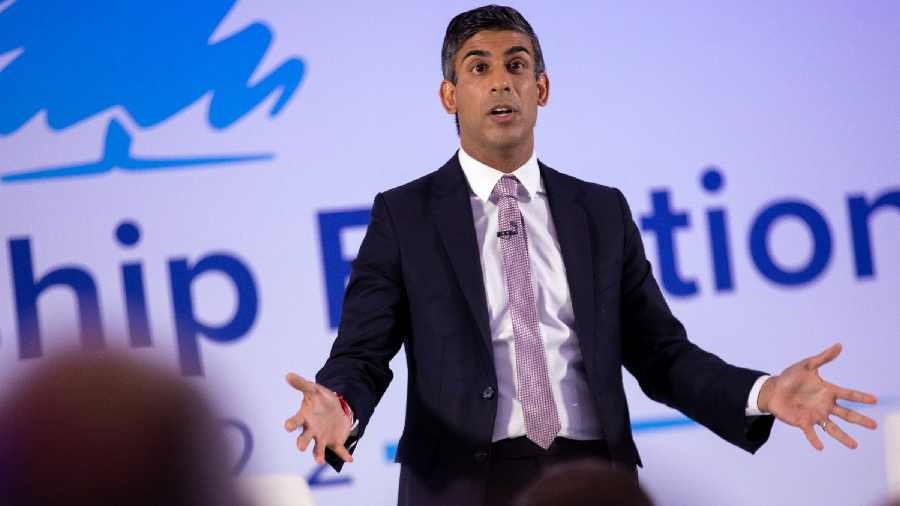British Prime Minister Rishi Sunak is on a tour of the US on Monday for a trilateral meeting with US President Joe Biden and Australian Prime Minister Anthony Albanese, during which he confirmed a hike in Britain’s defence budget of an extra GBP 5 billion over the next two years.
The world leaders will agree on details of a UK-US agreement to supply Australia with nuclear-powered submarines as part of the AUKUS pact, which was signed in 2021 as part of a joint effort to counter Chinese military power in the Indo-Pacific region.
Downing Street said GBP 3 billion from the extra defence spending would be earmarked to support the pact, along with boosting industrial infrastructure and servicing UK submarines.
“As the world becomes more volatile and competition between states becomes more intense, the UK must be ready to stand our ground,” said Sunak.
“By investing in our armed forces for the long-term, we will be ready for the challenges of today and of the future. As I will discuss with our American and Australian allies in the US today, the UK will remain a leading contributor to NATO and a reliable international partner, standing up for our values from Ukraine to the South China Seas,” he said.
“We have seen all too clearly in the last year how global crises impact us at home, with Russia’s appalling invasion of Ukraine driving up energy and food prices. We will fortify our national defences, from economic security to technology supply chains and intelligence expertise, to ensure we are never again vulnerable to the actions of a hostile power,” he added.
The announcement comes ahead of the government’s update to its 2021 'Integrated Review', which had defined the UK’s so-called Indo-Pacific tilt in a post-Brexit scenario.
The 2023 'Integrated Review Refresh' (IR23) will be tabled in Parliament to confirm that an additional GBP 5 billion will be provided to the Ministry of Defence over the next two years to help replenish and bolster vital ammunition stocks, modernise the UK’s nuclear enterprise and fund the next phase of the AUKUS submarine programme.
It follows a GBP 24 billion four-year uplift in defence spending in 2020, the largest sustained increase since the Cold War, Downing Street said.
As part of the refresh, Sunak has set out an ambition to increase defence spending to 2.5 per cent of GDP in the longer term, with a further review of defence spending set for post-2025.
“IR23 confirms that the UK will continue to play a leading role in Euro-Atlantic security, while also consolidating the strategic shift we achieved with the Indo-Pacific tilt,” Downing Street said.
“The IR Refresh also sets out how the UK will adapt our approach on China to deal with the epoch-defining challenge presented by the Chinese Communist Party’s increasingly concerning military, financial, and diplomatic activity,” it added.
Beijing claims almost all of the 1.3 million square miles of the South China Sea as its sovereign territory. China has been building military bases on artificial islands in the region also claimed by Brunei, Malaysia, the Philippines, Taiwan, and Vietnam.
The South China Sea is a region of tremendous economic and strategic importance. One-third of the world's maritime shipping passes through it, carrying over USD 3 trillion in trade each year.
The report identifies a number of priorities to tackle threats head-on, with the foremost set as dealing with the “fundamental risk posed to European security by Russia, and denying Moscow any benefit from their illegal invasion of Ukraine”.
IR23 was commissioned to respond to emerging geopolitical threats, detailed by Downing Street as “Russia’s illegal invasion of Ukraine to China’s economic coercion and increased competition between states”.
These trends were identified in the original 'Integrated Review', launched by then prime minister Boris Johnson, and are said to have intensified in the last two years.
Except for the headline, this story has not been edited by The Telegraph Online staff and has been published from a syndicated feed.











